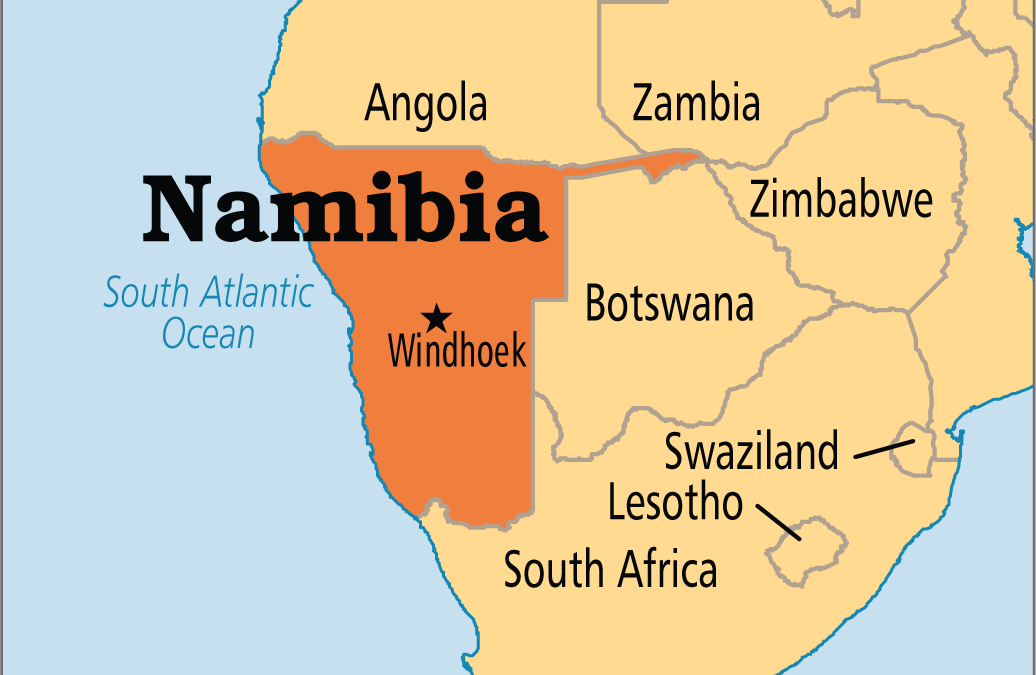Namibia officially the Republic of Namibia , and formerly German South-West Africa and then South West Africa, is a country in southern Africa whose western border is the Atlantic Ocean. It shares land borders with Zambia and Angola to the north, Botswana to the east and South Africa to the south and east. Although it does not border Zimbabwe, less than 200 metres of the Zambezi River (essentially a small bulge in Botswana to achieve a Botswana/Zambia micro-border) separates them at their closest points. It gained independence from South Africa on 21 March 1990, following the Namibian War of Independence. Its capital and largest city is Windhoek. Namibia is a member state of the United Nations (UN), the Southern African Development Community(SADC), the African Union (AU), and the Commonwealth of Nations.
The dry lands of Namibia were inhabited since early times by San, Damara, and Namaqua, and since about the 14th century AD by immigrating Bantu who came with the Bantu expansion. Most of the territory became German Imperial protectorate in 1884 and remained a German colony until the end of World War I. In 1920, the League of Nations mandated the country to South Africa, which imposed its laws and, from 1948, itsapartheid policy. The port of Walvis Bay and the offshore Penguin Islands had been annexed by the Cape Colony under the British crown by 1878 and had become an integral part of the new Union of South Africa at its creation in 1910.
Namibia became a German colony in 1884 under Otto von Bismarck to forestall British encroachment and was known as German South-West Africa (Deutsch-Südwestafrika).However, the Palgrave mission by the British governor in Cape Town had determined that only the natural deep-water harbour of Walvis Bay was worth occupying – and this was annexed to the Cape province of British South Africa.
From 1904 to 1907, the Herero and the Namaqua took up arms against the Germans and in calculated punitive action by the German occupiers, the ‘first genocide of the Twentieth Century’ was committed. In the Herero and Namaqua genocide, 10,000 Nama (half the population) and approximately 65,000 Hereros (about 80% of the population) were systematically murdered. The survivors, when finally released from detention, were subjected to a policy of dispossession, deportation, forced labour, racial segregation and discrimination in a system that in many ways anticipated apartheid.











